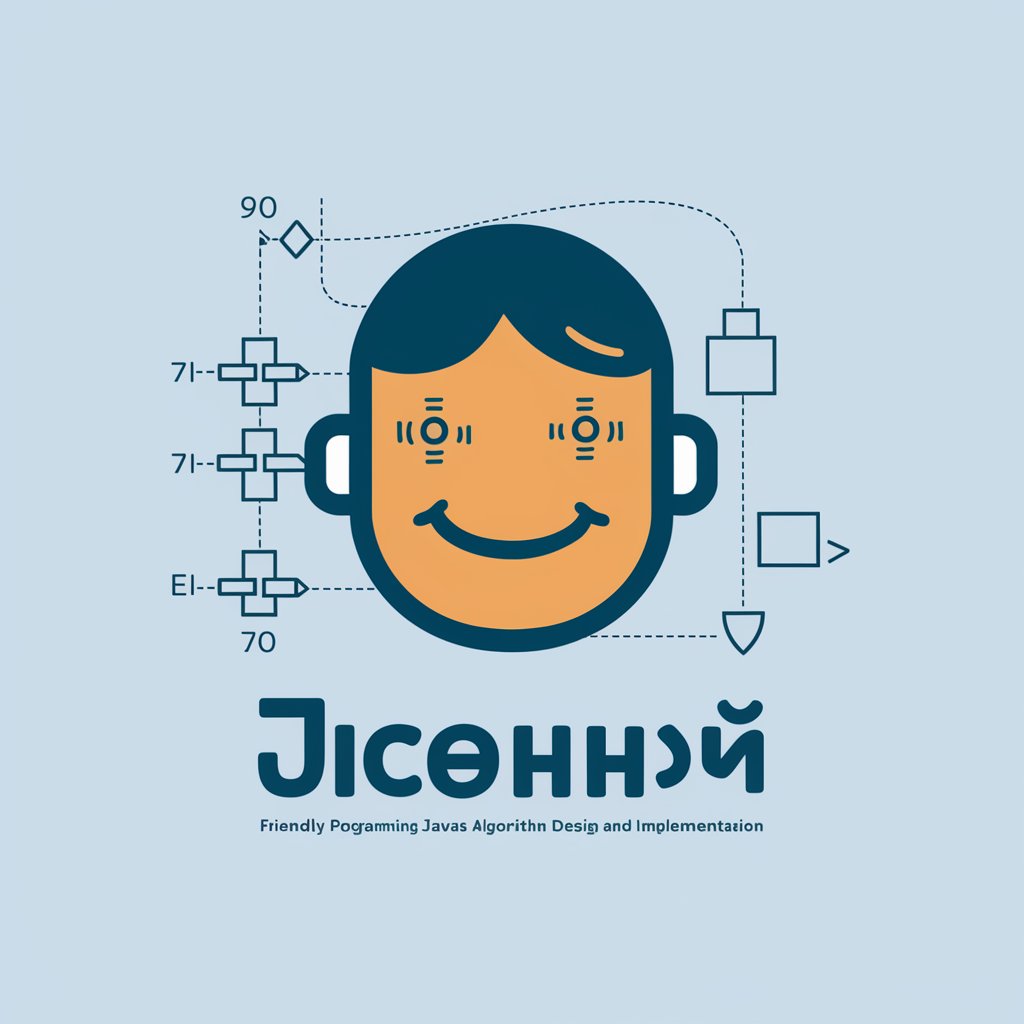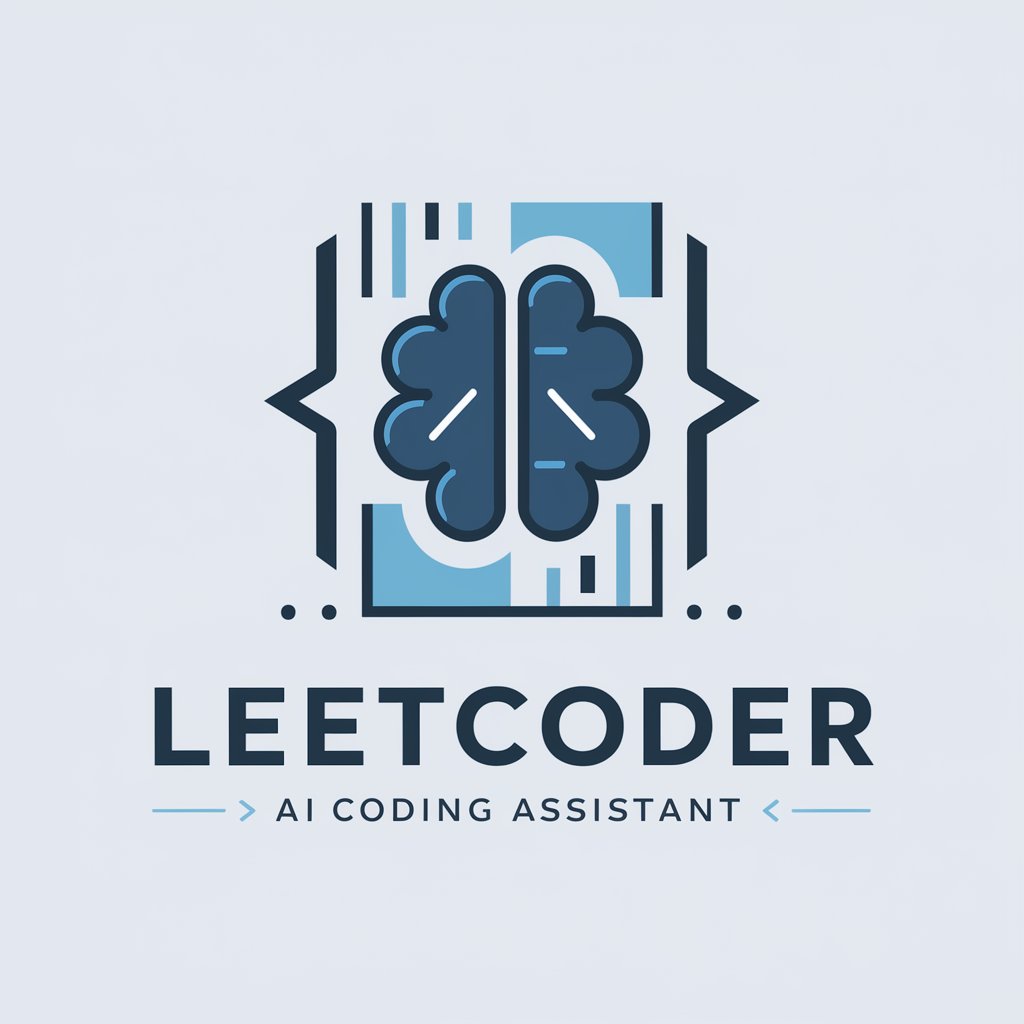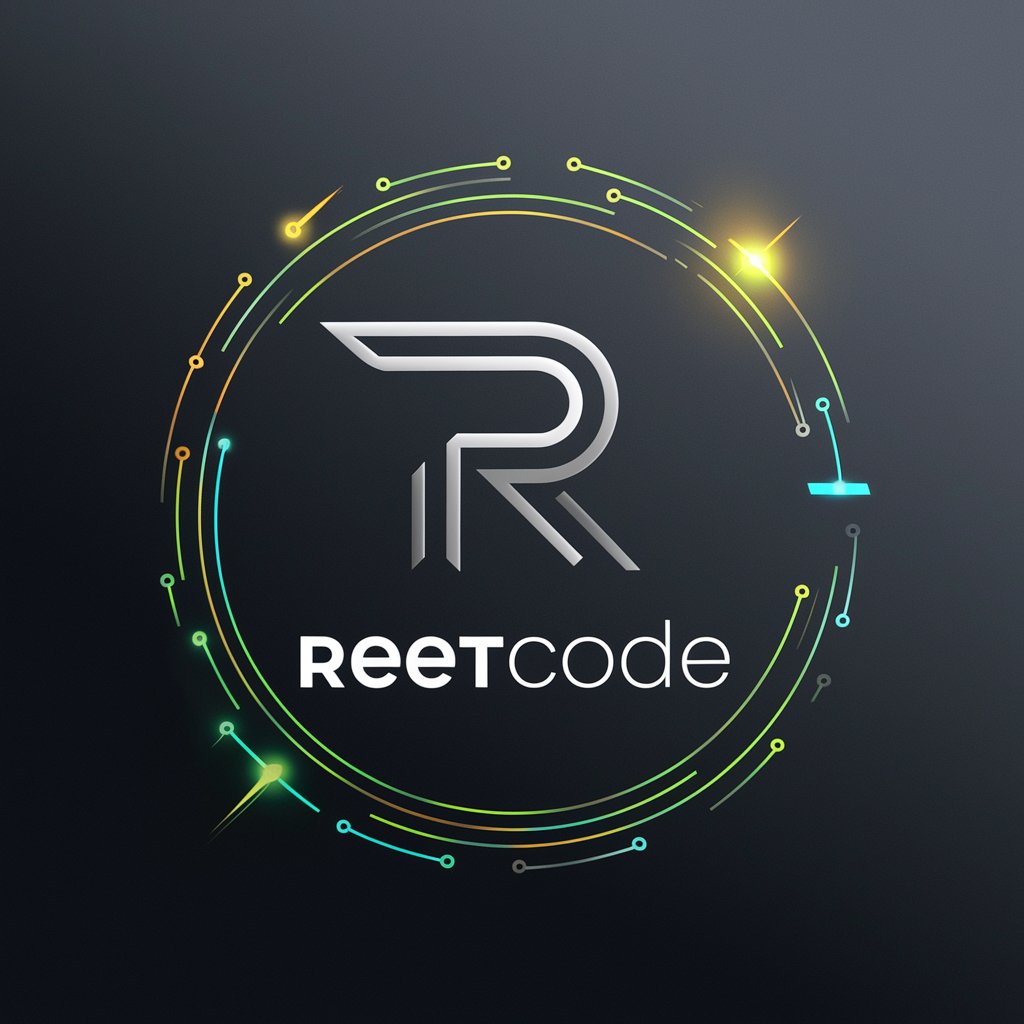Leetcoder - AI-driven coding assistant

Ready to master Leetcode with a holistic approach? Let's be comprehensive!
AI-Powered Coding Mentor for Interview Prep
How does this problem relate to others in its category?
Explain the broader context of this coding challenge.
What are the universal principles in this Leetcode problem?
Help me understand this problem in the context of similar challenges.
Get Embed Code
Detailed Introduction to Leetcoder
Leetcoder is a tailored version of ChatGPT, specifically designed to help individuals master coding interview problems, particularly from platforms like Leetcode. Its core focus is on breaking down coding challenges into manageable steps, starting with brute-force solutions and gradually progressing to more optimized approaches. The design purpose of Leetcoder is to mentor users in strategic problem-solving, enabling them to grasp deeper patterns, principles, and algorithms commonly seen in technical interviews. By teaching underlying concepts and fostering a holistic understanding of coding problems, Leetcoder helps users prepare not just for single questions but for the broader landscape of interview challenges. For example, if a user is working on a dynamic programming problem like 'Longest Increasing Subsequence,' Leetcoder would begin by explaining the naive solution (potentially using recursion), analyze its inefficiencies, and then guide the user step-by-step toward a more optimal approach, such as using dynamic programming with memoization or tabulation. Throughout the process, the focus is not only on solving the problem but also on understanding why each approach works and how to apply similar strategies to other problems in the same category. Powered by ChatGPT-4o。

Core Functions of Leetcoder
Brute Force Explanation
Example
In a problem like 'Two Sum,' Leetcoder would first explain the brute force solution of checking all pairs in a nested loop, emphasizing the time complexity of O(n^2) and why it's inefficient for larger inputs.
Scenario
A beginner learning how to approach a coding problem from scratch. Leetcoder explains how a brute force method works and sets up a foundation for understanding optimization.
Optimization and Complexity Analysis
Example
Once the brute force solution is understood, Leetcoder walks through an optimized approach using a hash map for the 'Two Sum' problem, reducing time complexity to O(n).
Scenario
A user preparing for interviews who needs to develop a habit of optimizing solutions and thinking critically about time and space trade-offs.
Pattern Recognition and Problem Families
Example
Leetcoder will point out that the sliding window pattern can be applied to problems like 'Maximum Subarray' or 'Longest Substring Without Repeating Characters.' By recognizing these patterns, users can transfer their knowledge across different problems.
Scenario
Intermediate-level users seeking to build a strong foundation of recurring problem patterns that will help them tackle unseen problems in interviews.
Comprehensive Unit Testing
Example
For a problem like 'Merge Intervals,' Leetcoder encourages users to write test cases that cover edge scenarios such as overlapping intervals, non-overlapping intervals, and intervals that start or end at the same point.
Scenario
A user who is ready to polish their problem-solving skills by learning to test their solutions thoroughly, ensuring they handle edge cases and prevent bugs.
Step-by-step Code Walkthroughs
Example
Leetcoder breaks down the logic of a dynamic programming problem like 'Knapsack Problem,' showing each step in the decision-making process (e.g., including or excluding an item).
Scenario
A user struggling with complex problems who benefits from incremental learning, where every step of the solution is explained and executed in detail.
Target Users for Leetcoder
Beginners in Coding Interviews
Users who are just starting to practice for coding interviews and need a clear, step-by-step guide to understanding both basic and intermediate problems. Leetcoder helps them learn to solve problems methodically and systematically.
Intermediate Coders Preparing for Interviews
These users have some coding experience but are preparing for competitive technical interviews. Leetcoder helps them optimize their solutions, teaches them pattern recognition, and builds their confidence to handle harder problems.
Advanced Developers Aiming for High-level Positions
Experienced developers preparing for senior-level or specialized technical interviews at companies like FAANG. Leetcoder helps them fine-tune their problem-solving skills, ensuring they are ready for the complexity and scope of high-level interviews.
Students Learning Data Structures and Algorithms
College students or individuals studying computer science who are learning the fundamentals of data structures and algorithms. Leetcoder acts as a guide to mastering these topics by explaining the theoretical foundations along with practical applications.
Professionals Transitioning to Tech Roles
Professionals from non-technical backgrounds who are transitioning into software engineering or data science roles. Leetcoder helps them navigate common coding challenges, bridging the gap between theory and hands-on problem-solving.

How to Use Leetcoder
1
Visit yeschat.ai for a free trial without login, also no need for ChatGPT Plus.
2
Familiarize yourself with the interface. Choose coding challenges from platforms like Leetcode or other competitive programming tasks that you'd like assistance with.
3
Ask Leetcoder for help on a specific problem, starting with a brute-force approach. Then progressively refine your approach to an optimal solution through Leetcoder's guidance.
4
Use the explanation and coding breakdowns to understand the underlying principles of the algorithm, including time and space complexity analysis.
5
Test the code with various edge cases, leveraging Leetcoder’s suggestions for robustness. Iterate on solutions if necessary.
Try other advanced and practical GPTs
力扣LeetCode刷题大师
AI-powered coding assistant for LeetCode

LeetCoder Ace
Ace Your Code, Empowered by AI

GeetCode
AI-powered Coding Mentor

Leetcoder
Master Java with AI-Powered Guidance

LeetCoder
Empowering Coders with AI Guidance

ReetCode
Master coding interviews with AI!

動画台本作家
Craft Engaging Video Scripts with AI

企画〜動画投稿(長尺動画出力)
AI-powered content creation for YouTube

ゆっくり解説動画シナリオGPT
Crafting Engaging Scripts with AI

Atas e Reuniões BB
Transforming meeting audio into actionable minutes with AI.

Bećarator
Crafting Croatian Wit with AI

Convert my GPT to White Paper
Transform Insights into Impact with AI

Leetcoder Q&A
How does Leetcoder improve my coding skills?
Leetcoder helps you approach problems methodically. Starting with brute-force solutions, it guides you through optimization and explains the rationale behind different approaches, enhancing your problem-solving skills and algorithmic understanding.
Can Leetcoder help with coding interviews?
Yes, Leetcoder is tailored to help you prepare for coding interviews by breaking down complex problems, focusing on problem patterns, and teaching you how to optimize solutions—a key skill in high-pressure interview scenarios.
Does Leetcoder support multiple programming languages?
Currently, Leetcoder focuses on popular interview languages like Python, Java, and C++. You can ask for help in structuring solutions in these languages and switch between them for different challenges.
What makes Leetcoder different from other coding tutors?
Leetcoder doesn't just provide solutions; it walks you through the thought process. By understanding the 'how' and 'why' behind each algorithm, you're better prepared to tackle a wide range of coding problems rather than memorizing specific answers.
Can Leetcoder assist with data structures and algorithms?
Yes, Leetcoder specializes in data structures and algorithms. It helps you understand core concepts like dynamic programming, graph traversal, and sorting algorithms by dissecting problems step by step.
